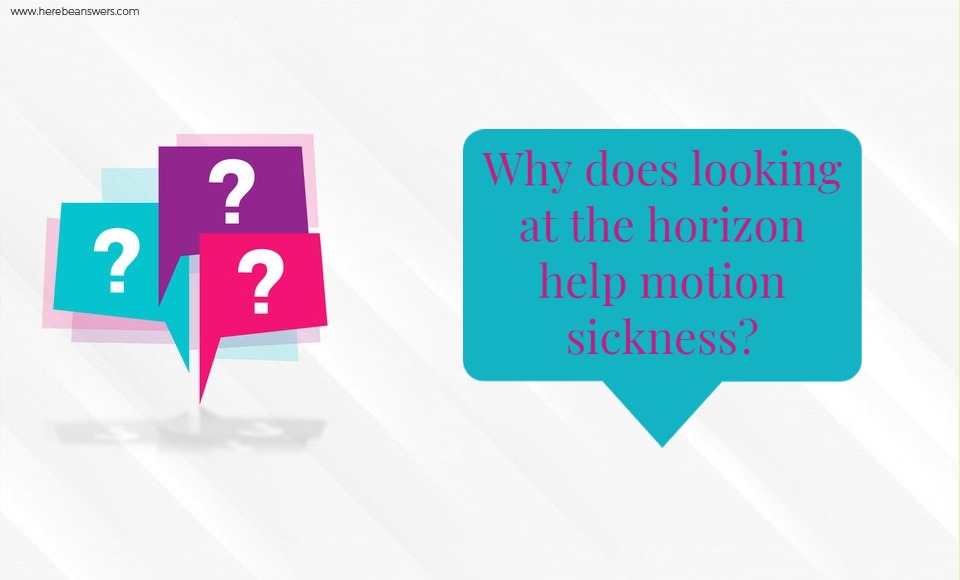While going to sea is an incredible experience, some people are anxious about travelling via water due to the possibility of getting motion sickness. The same feeling can elicit when you ride a car, plane, or even a short amusement ride. But why does it happens? And if you have heard of it like an old tale, why is it said that looking at the horizon helps relieve motion sickness?
Motion sickness is a result of a conflict within the senses. First, you might be surprised, but your inner ears are responsible is regulating your sense of balance, and are a critical part of the vestibular system. It is a network that provides the brain with information on head position, spatial orientation, and motion. Moreover, it is also in charge of motor function, enabling you to stabilize your body, keep your balance, and maintain posture while in movement.
The system in the inner ears consists of two sacs, regarded as the utricles and saccule, and three pairs of semicircular canals. The semicircular canals keep a fluid that sways as you move or turn head. The sacs are then very sensitive to gravity and determine whether you are lying down or standing up.
The vestibular system sends in data to the brain, which the latter takes in and interprets. However, there are instances when the brain can be confused about the signals coming from different senses.
For instance, you are in a cabin of a boat. There is an up-and-down, and side-to-side motion as the body sways along with the boat. However, your eyes only detect a seemingly stable scene. Your muscles feel you’re moving, your eyes see one thing as if you’re not going anywhere, and your inner ears register something else.
It overloads the brain with all the mixed signals. As it is agitated by these incongruities, the brain responds by sending stress-related hormones that eventually lead to vomiting, nausea, and vertigo. Thus, you end up with motion sickness.
Getting motion sickness is undoubtedly an uneasy feeling. One of the remedies we often hear is to look at the horizon. Surprisingly, it has been proven effective against the condition. But why?
Looking at the horizon gives your brain a helpful point of reference, enabling you to sense your body’s motion in relation to the ship’s up-and-down and side-to-side movement. That works incredibly if you have a landmass, such as a mountain or an island to look at. The little movements from your eyes will match the information your inner ears send, removing confusion with the data in the brain. Closing your eyes may also help, as it can aid in reducing mixed signals.
While looking at the horizon is a great remedy, prevention is the key to avoid any extreme uneasy feelings. You can take prescription and non-prescription medications to reduce the symptoms of vomition, nausea, and vertigo. Often, these medicines are taken before traveling for the best effects. They are also sedatives available to decrease the effects of motion.
Other remedies people try of combat motion sickness, includes wearing acupressure wristbands and ingesting powdered ginger capsules. There’s no harm in trying these methods, as they may offer quite a relief. However, there is not much proof yet that they can prevent the condition. So, if you experience motion sickness, you might feel better when you look at the horizon.
More Readings:
Motion Sickness (Wikipedia)
You Might Also Like:
● How do motion detectors detect motion in the dark?
● Why don’t we feel the motion of the rotating Earth?
● Why do we feel dizzy after running in circles?
